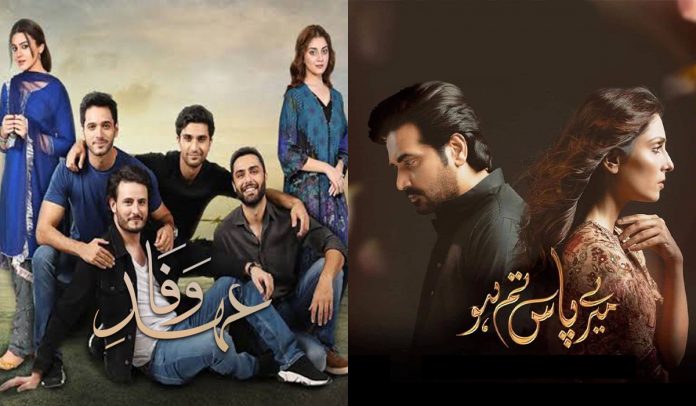Brand sponsorship is not an unknown thing in the Pakistani entertainment industry. From films being sponsored by ice-cream brands to fashion events being sponsored by a mineral water brand, it seems like the majority of the content being made in the Pakistani entertainment industry is backed by one brand or the other. However, the recent trend shows that brands have now started to broaden their horizons and target the Pakistani dramas as well.
Why it’s a winning marketing strategy
It is no secret that Mere Paas Tum Ho is one of, if not the most, watched dramas of 2019. There is so much talk around the drama that every little development that happens immediately goes viral all over social media. So, this week when the title montage of the drama and the official posts about the drama on social media had an additional hashtag preceding the drama’s title, it was definitely something that was easily recognized. We are of course talking about the addition of “#ZeeraPlusPresents” that has suddenly started appearing everywhere the drama is mentioned.
MPTH is not the only drama where the sponsor’s name comes before the drama’s title. Another drama currently on air Ehd e Wafa also has the words “#MasterPaintsPresent” shining brightly above the drama’s title. One wonders what does a biscuit brand has to do with a drama based on a woman’s bewafai and how does wall-paint factor in the story that is about four friends finding their path in life. Apparently, it doesn’t matter for the brand. All it matters is that the brand gets to have their name known and they are succeeding in it.
How far can the brand integration go
Some of the low to mid-budget Pakistani films rely on brand sponsorships to get through the production. Karachi Se Lahore had an ice-cream brand as one of its main sponsors and the film had specific scenes dedicated to the characters eating the said ice-cream with zero subtlety. Dobara Phir Se had a fast-food brand as one of the sponsors and the film had a completely random scene of the main characters ordering food from the specific fast-food restaurant or even going to visit it.
So far, Pakistani dramas have not been subject to the same treatment. But that is only because unlike the films, brands tend to attach themselves to a drama after it starts airing instead of before it. In the cases that brands do get on-board a drama as a sponsor and the drama is still in the process of production, the brands don’t let go of the chance of indulging in product placement (PPL) within the drama. Case in point Hum TV’s Ramzan special drama Suno Chanda and Suno Chanda 2.
For the most part, Suno Chanda was without any major sponsor, however, when it was evident that the drama was a huge success midway through its run, a popular clothing brand got on-board the drama as its sponsor. And the last few episodes of the drama, which were still being shot while the drama was on-air, had random scenes and montages dedicated to the characters shopping at an outlet of the said clothing brand. The sequel to Suno Chanda had its sponsors on-board from the beginning so the PPL was evident from the start and remained consistent till the end.
With the kind of popularity that Pakistani dramas tend to get, much more so than some of the locally produced films, it is no wonder that brands want to attach themselves to the popular dramas. What remains to be seen is how soon will the brands start to attach themselves to any project. Will they wait for a drama to become a massive hit to attach their name to it like Mere Paas Tum Ho or will they get on-board from the beginning like Suno Chanda?
Either way, it will be interesting to see how this trend of brand sponsorship will affect the dramas being produced. Imagine a drama about a serious social topic that has the characters praising how good a samosa tastes with ketchup of a certain brand. It seems ludicrous but hey, it’s all business at the end of the day!




